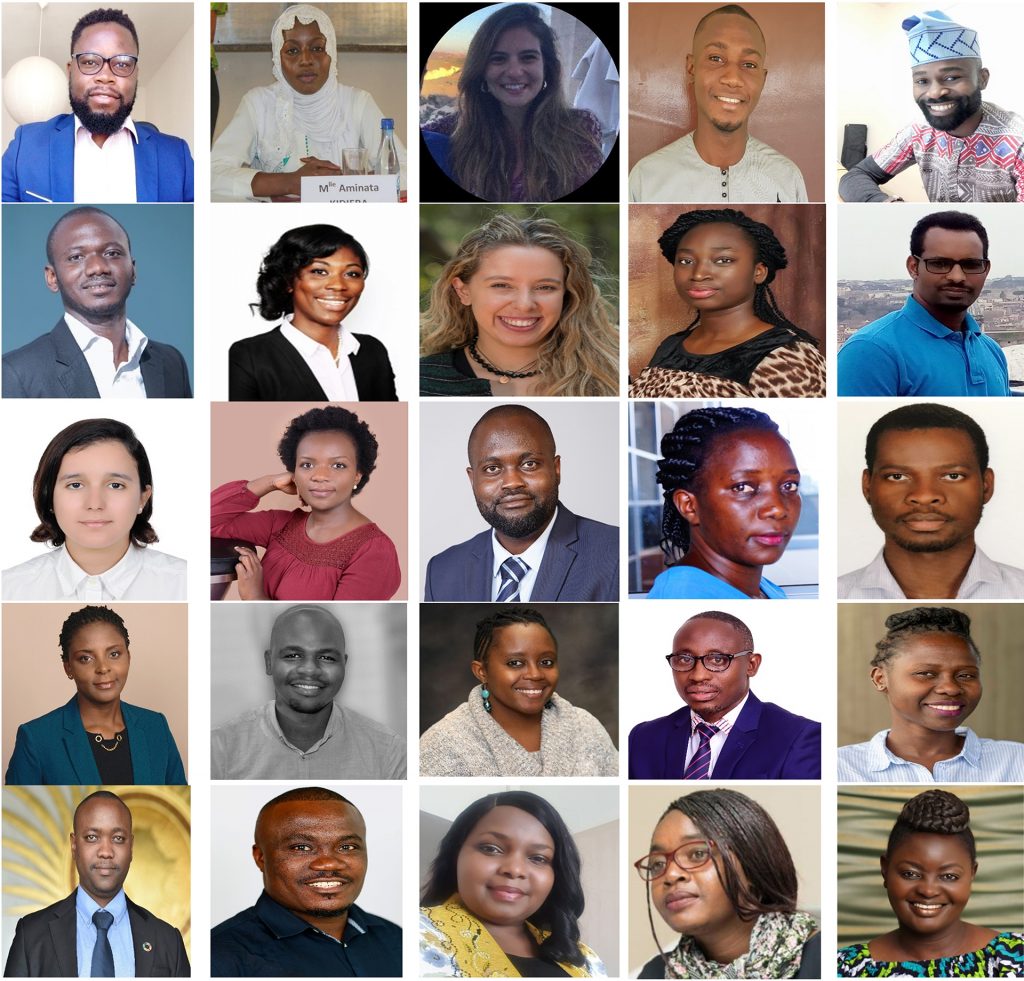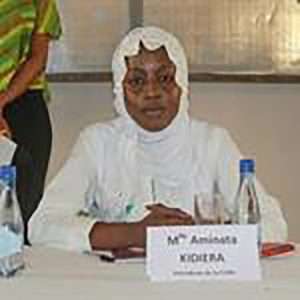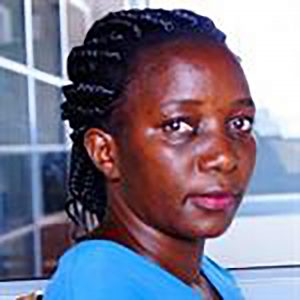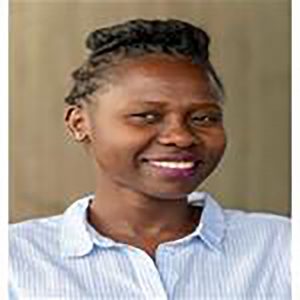Virtual Research Sprint 2021
Home » College of Business and Economics » Schools » South African Research Chair in Industrial Development » Research »Research sprint participants explore an African narrative on digital sovereignty
The DSI/NRF South African Research Chair in Industrial Development (SARChI-ID), in collaboration with Alexander von Humboldt Institute for Internet and Society, with funding from the Mercator Foundation, is hosting an eight-week “Research Sprint” with a cohort of fellows from various African countries. The Research Sprint is hosted within the framework of the Ethics of Digitalization project run by the Alexander von Humboldt Institute for Internet and Society, the Leibniz Institute for Media Research | Hans-Bredow-Institut, the Berkman Klein Center for Internet and Society, and the Global Network of Internet and Society Research Centers (NoC), under the auspices of the Federal President of Germany and with funding from the Mercator Foundation. The project advances dialogue and action at the intersection of science, politics, digital economy, and civil society broadly. The Research Sprint hosted by SARChI-ID explores specific questions related to data colonialism, striking a balance between use of digital technologies and guarding against data commodification, and digital surveillance. This Research Sprint is one in a series that will take place over the next year and follows a Sprint hosted by the Berkman Klein Center on digital self-determination.
This Research Sprint focuses on digital sovereignty in Africa to look at what solutions can help realize national and individual interests of citizens in the digital economy across Africa, and assist African countries leverage their own unique advantages. During the eight weeks, fellows will explore important questions and solutions – including technology tools – from the perspective of users, technologists and policy makers in Africa. They will get the chance to articulate an internal African vision for development in the digital age.
For more information, contact the Sprint Project Team through the Sprint Chair: Padmashree Gehl Sampath and Regional Partner: Fiona Tregenna
Our Regional Team from SARChI-ID, University of Johannesburg includes: Phumzile Ncube, Koketso Manyane-Dlangamandla, Nicola King and Alexis Habiyaremye, as supported by the HIIG Project Team: Nadine Birner and Matthias C. Kettemann
In response to our Call for Applications, we received an overwhelming number of outstanding applications. We are proud to announce and recognise our 25 participants, a mix of academics and practitioners from 14 African countries, across a wide range of disciplines and focus areas.

OUTCOMES OF THE RESEARCH SPRINT
The Research Sprint was a collaborative, open environment during which participants worked with peers and experts from around Africa and beyond to produce evidence-based reflections on the digital economy and its implications particularly for Africa. The Sprint culminated in a series of articles authored by the fellows covering various issues related to digital transformation and digital sovereignty in an African context, with topics such as digital infrastructure development, the management of health data, and also the use of artificial intelligence in content governance.
The articles appear as part of two separate outlets, and the sprint syllabus is now also available online.
I. Digital Sovereignty: African Perspectives
This is a compilation of articles, edited by Professors Gehl Sampath and Tregenna, highlighting how digitization is unfolding in Africa, with concrete examples and perspectives that are relevant for scholars, policy makers and civil society engaging on these issues. This edited publication can be accessed here.
KEYWORDS
Digital Economy, Digital Sovereignty, Africa, Development, Transformation, Social Change, Economic Growth, Governance, Artificial Intelligence, Platforms
II. Digital Sovereignty: A Blog Series
This blog series, also edited by Professors Gehl Sampath and Tregenna, contains a compilation of articles that discuss roles and responsibilities of actors in various areas to mitigate the fallouts of digitization in Africa, ranging from e-learning to promote inclusion of those with disabilities, to e-solutions to gender inequality, to e-mourning and the loss of culture. The blogs focus on regaining digital sovereignty by devising local solutions. The blog series can be accessed here.
KEYWORDS
Digital economy, Digital Economy, Digital Sovereignty, Africa, Digital Governance, E-learning, Gender Equality, Social Development, Inclusion, Cultural erosion.
III. Wikivarsity Syllabus
A full syllabus of the Sprint that can be used for teaching and training purposes is now available on Wikivarsity and can be accessed here.
For more details on each of our fellows, see below:
[/vc_column_text]

Adio-Adet Dinika
Affiliation: University of Bremen
Areas of focus: Digitisation, digital labour rights, digital economy

Aminata Kidiera
Affiliation: Gaston Berger University
Areas of focus: Digital law, AI Ethics

Ayça Atabey
Affiliation: University of Edinburgh
Areas of focus: Data protection, information privacy, human rights

Bendjedid Rachad Sanoussi
Affiliation: Internet Society;KNUST
Areas of focus: Network & telecommunications engineering

Benjamin Akinmoyeje
Affiliation: Namibia University of Science and Technology
Areas of focus: Digital health applications

Blaise Bayuo
Affiliation: Tony Blair Institute for Global Change
Areas of focus: Technology & financial access, health technology

Bridget Boakye
Affiliation: Tony Blair Institute for Global Change
Areas of focus: Internet policy, AI ethics

Emma Ruiters
Affiliation: Genesis Analytics
Areas of focus: Digital economy, ICT policy

Faith Obafemi
Affiliation: Future Proof Intelligence
Areas of focus: Technology law, blockchain, cryptocurrency

Halefom Abraha
Affiliation: University of Malta
Areas of focus: Cross-border data & jurisdiction, internet governance

Ibtissam Chafia
Affiliation: Mohammed 6 Polytechnic University; OCP Group
Areas of focus: Data science, machine-learning

Jacquelene Mwangi
Affiliation: Harvard Law School
Areas of focus: Law, technology, innovation

Julius Mboizi
Affiliation: Uganda Communications Commission
Areas of focus: Technology policy & regulation

Lydia Namugabo
Affiliation: University of South Africa
Areas of focus: Information Systems

Michael Asiedu
Affiliation: University of St. Gallen
Areas of focus: Digital censorship

Ngwinui Azenui
Affiliation: Denison University
Areas of focus: Economics, structural change

Oarabile Mudongo
Affiliation: Research ICT Africa; University of the Witwatersrand
Areas of focus: AI surveillance, facial recognition

Odilile Ayodele
Affiliation: Independent
Areas of focus: International relations, digital transformation

Olusesan Awoleye
Affiliation: Obafemi Awolowo University
Areas of focus: Technology management, information engineering, machine learning

Peace Amuge
Affiliation: Women of Uganda Network
Areas of focus: Digital human rights, internet governance

Peter Mmbando
Affiliation: Southern Africa Youth Forum
Areas of focus: Digital rights & inclusion

Sadrag Shihomeka
Affiliation: University of Namibia
Areas of focus: Educational technologies; digital literacy

Sylvia Mutua
Affiliation: Communication University of China;Technical University of Mombasa
Areas of focus: Content governance, digital literacy

Tarirayi Machiwenyika-Mukabeta
Affiliation: Bindura University of Science Education
Areas of focus: Educational technology, computer science

Winnie Kamau
Affiliation: Talk Africa
Areas of focus: Data journalism, data visualisation
